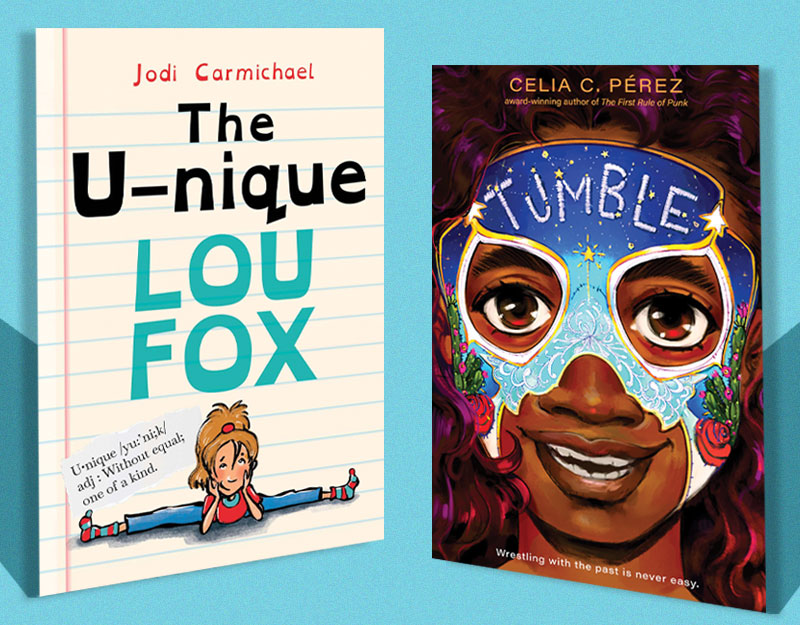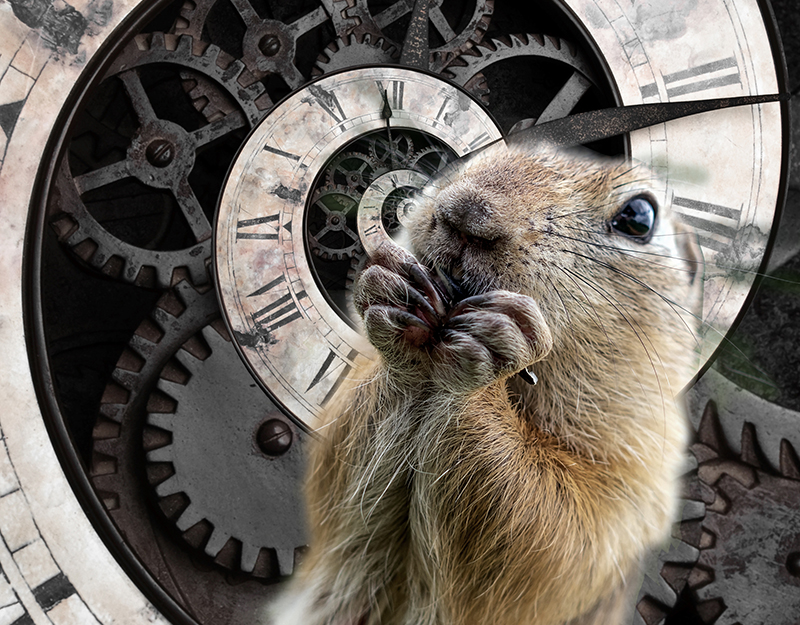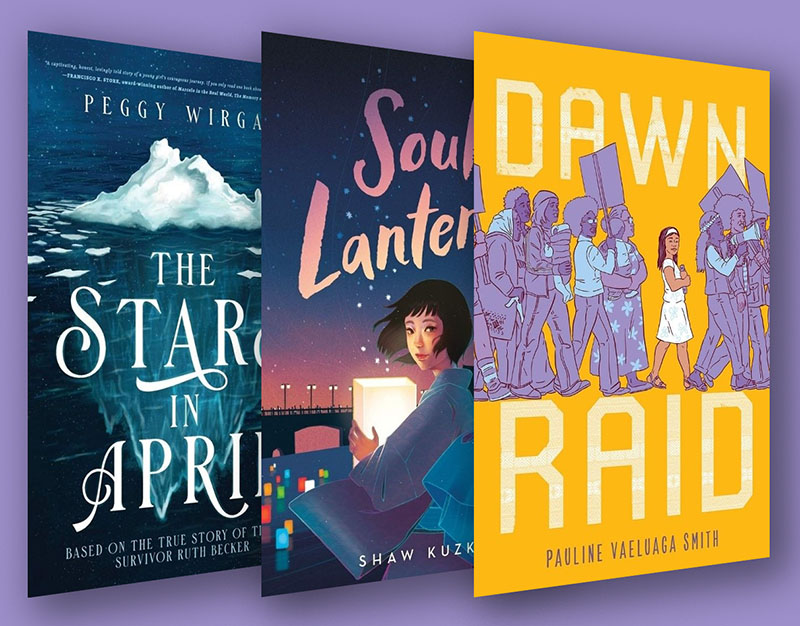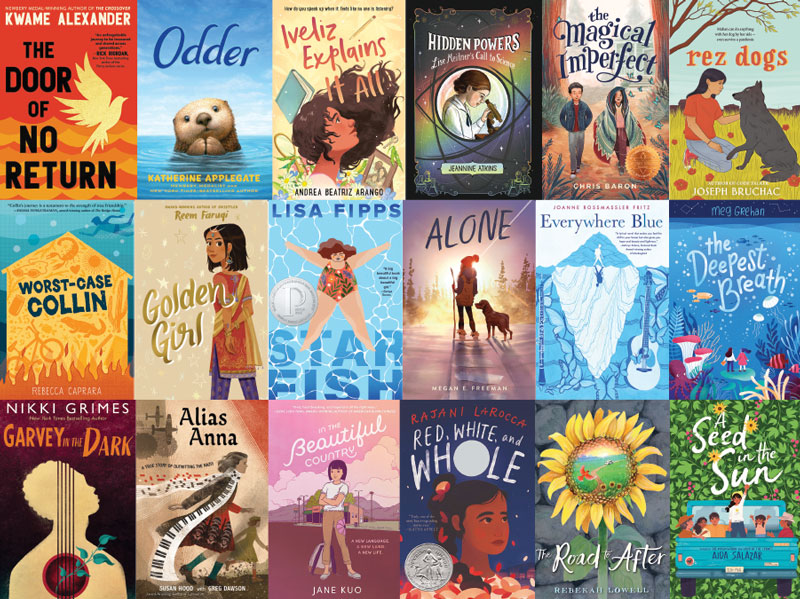COVER REVEAL for THE OWL PROWL MYSTERY and Why Tweens Make Great Eco Sleuths, a guest post by Diana Renn

Three years ago, with my first middle grade novel approaching its publication date, I was on the hunt for a new book idea. Trouble at Turtle Pond was an eco-mystery inspired by classroom volunteer work with my son. His fourth- and fifth-grade classes had partnered with Zoo New England to headstart endangered Blanding’s turtles. Turtle work became a family project. I’d volunteered for activities and field trips. My son and I joined wildlife biologists to track nesting turtles. We’d even fostered ten hatchlings in our guest bedroom. (You can read more about this journey in my 2022 post for Teen Librarian Toolbox, “Helping Turtles: Writing as Conservation Work”). Trouble at Turtle Pond incorporated some of our conservation efforts alongside a mystery about a boy named Miles and his team of self-appointed young wildlife rangers. Together, the Backyard Rangers track down wildlife poachers who are selling turtles.

I had loved writing that novel not only because I’d come to love turtles, but also, I suppose, because it stopped time. Now high school was around the corner, and my son spent his spare time hunched over homework. One evening, he was so absorbed in homework he did not even notice the unusual visitor right outside the kitchen window.
ADVERTISEMENT
ADVERTISEMENT
A beautiful barred owl was perched on a tree branch outside the kitchen, apparently watching him. I told my son to look up. He did. We shared a magical moment, observing the owl together, but it was merely a moment. He turned back to his homework. The owl flew off.

But that moment gave me my story. I would write about owls. I would not move on from the cozy town of Marsh Hollow I’d created—a town with an abundance of wildlife, and plenty more problems to solve. I would not move on from the Backyard Rangers, a team of compassionate fifth-grade sleuths whose motto was “Pay Attention and Protect!” And though my son was moving on to high school, I would stay in the middle grade world in this book, giving Miles and his friends a high-flying birding adventure.
As I began researching and writing, I realized there was more to my decision to stay with middle grade than a desire to stop the clock. Having written three YA mysteries prior to this series, I knew exactly why my nature detectives needed to be tweens, not teens.

Tweens make excellent eco-sleuths! Here are just some of the reasons:
Time on their hands. By upper elementary school and middle school, kids’ schedules may swell with homework and activities. Yet without heavy homework or part-time jobs, most tweens have swaths of time. The Backyard Rangers start to navigate homework, a school play, appointments, and sibling care. But when they’re “off duty,” time seems to expand for their woodland adventures. None of them wear watches, and only one has a phone.
Bandwidth to Spare. Friendships are becoming more complex, but time- and attention-consuming romance is not yet in the picture. As friendship-centered mysteries, my books do make space for changing and challenging peer dynamics. The Owl Prowl Mystery takes place during the school year. The rangers must decide if they will trick or treat on Halloween, attend a popular girl’s party, or go undercover on an owl prowl to look for unethical birders. They express concern about being labeled as “bird nerds.” However, even with shifting social dynamics, they devote most of their attention to looking for a mysterious owl neighbor and for bad birders who are baiting owls and flushing them into roads.
Access to nature. Still-growing tweens are closer to the ground. They notice nature from their vantage point, seeing things that older, taller people might rush past. Tweens have opportunities to encounter nature in parks—which they haven’t aged out of—or school playgrounds, if they still have some version of recess. They might access nature through structured school or camp activities. They may be more clued in to nature’s resilient presence in urban settings. In The Owl Prowl Mystery, nature is part of the school curriculum, weaving into the rangers’ investigative work. The kids use tools from school—including a field guide, a bird count list, a nature journal, and an owl pellet dissection assignment—to uncover clues in and out of the classroom.

An emotional connection to animals. Animal-centered books and media from early childhood still lingers in tweens’ memories. Tweens may have an easier time considering animals’ perspectives, feeling compassion. In Trouble at Turtle Pond, Miles feels a powerful, almost magical connection to the turtles in his new neighborhood. He imagines he can hear their thoughts, which in turn helps him speak up on the turtles’ behalf. In The Owl Prowl Mystery, Miles pays attention to owl hooting at night, and translates the hoots into words. He creates flip books, comics, and cartoon posters with speech bubbles that express what the owls might say, as part of a public awareness campaign to protect local owls.
Growing independence. As fledglings, tweens are expanding their range. They may explore on bikes or buses, or on foot. They don’t need to go too far to find something to observe. Even returning to a favorite local spot can become an opportunity to observe nature closely. Observed changes can become clues. Miles finds owl pellets in the woods near his house; in them, he discovers white fur, and a bird band, signs of unusual activity. The pastime of birding also requires geographic range. Lacking cars, or permission to bike great distances, the birding Backyard Rangers team up with a rival group across town in order to cover more territory.
A Developing Sense of Ethics. Tweens are old enough to consider the effects of human interactions with nature. They can use technology to document and share their discoveries. Apps like iNaturalist and Seek, often used for community science and Bio Blitz initiatives, are accessible to kids. However, these activities have ethical considerations. What are the consequences of telling everyone exactly where a rare bird was spotted? As the Backyard Rangers learn to navigate a popular birding app in The Owl Prowl Mystery, they learn that sharing too much on social media isn’t helpful for birds. Over-sharing can drive more people to those locations, disrupting habitats and behaviors, and causing birds stress. Considering choices made on social media in the context of birding yields valuable lessons tweens can carry with them into young adulthood.
ADVERTISEMENT
ADVERTISEMENT
Hope. Kids of all ages experience eco-anxiety. Tweens are still engaging with nature while beginning to think more critically. Despite a growing sense of the fragility of nature, they are still able to celebrate it. In The Owl Prowl Mystery, eco-anxiety is creeping in. Miles’s good friend Pia is particularly intense in her desire to protect birds, even circulating a flyer to urge everyone to take down Halloween decorations, like fake webs, which might harm owls. The rangers also confront hard realities, such as injured owls and predation. (As one character laments, “Why does everything I love eat something else that I love?”) Yet the efforts of young people to solve a problem in nature, whether it’s saving one animal or an entire ecosystem, can inspire others to do the same. The tendency of middle grade novels to end on a hopeful note can lead young readers—and the adults who still might read alongside them—to carry that hope out into the world, and to work for change.

I’m delighted to reveal the cover for The Owl Prowl Mystery, designed by the talented C.B. Royal at Fitzroy Books / Regal House. She perfectly captures the experience of the middle grade eco-sleuth. Miles trains his binoculars on a real owl, even as mysterious eyes in the bushes watch him—eyes which may exist only in his still-vivid imagination. Precariously perched on the tree branch—not unlike the owl that visited my son—Miles occupies a space between imagination and reality, between anxiety and hope, between early childhood and young adulthood. For now, it’s exactly the right place for him.
BOOK SUMMARY
Ever since the Backyard Rangers saved turtles in their town, Miles thought his troubles were behind him. But adjusting to his new school hasn’t been easy, and now there’s a new wildlife problem. Birdwatchers and paparazzi are flocking to see Marsh Hollow’s newest celebrity, ” Bella” the barred owl. The crowds are putting all of Marsh Hollow’s owls on a deadly collision course with humans. Miles and his friends spring into action, launching a campaign to protect their feathery friends. When Miles discovers that someone is baiting and trapping owls, wildlife photographers, birders, neighbors, and kids all become suspects. Soon, owls aren’t the only thing that’s threatened– secrets, tensions, and a rival group of rangers put friendships to the test. Will this be the end of the Backyard Rangers? Or can they band together and solve the mystery before more owls get hurt?
BIO

Diana Renn is the author of five mysteries for young readers including Tokyo Heist and Blue Voyage (Viking / Penguin Random House). Her middle grade eco-mystery Trouble at Turtle Pond was named a 2023 Green Earth Book Award Honor Book and a Massachusetts Book Awards ” Must Read.” Book Two in the Backyard Rangers mysteries flies to shelves August 13, 2024. Diana volunteers as a mentor with Creature Conserve, an organization that connects artists, writers and scientists who are working on conservation issues. She lives in a town outside of Boston in a neighborhood with turtles and owls, which have inspired her Backyard Rangers books.
LINKS
Book info / Pre-order links:
The Owl Prowl Mystery
https://regal-house-publishing.mybigcommerce.com/the-owl-prowl-mystery/
Trouble at Turtle Pond
https://regal-house-publishing.mybigcommerce.com/trouble-at-turtle-pond/
Find Diana online:
Previous TLT guest post:
“Helping Turtles: Writing as Conservation Work” (March 30, 2022)
Author Website:
Instagram:
https://www.instagram.com/dianarennbooks/
Substack / Newsletter:
https://dianarenn.substack.com/about
Filed under: Middle Grade, Middle Grade Fiction, Mind the Middle, Mind the Middle Project
About Karen Jensen, MLS
Karen Jensen has been a Teen Services Librarian for almost 30 years. She created TLT in 2011 and is the co-editor of The Whole Library Handbook: Teen Services with Heather Booth (ALA Editions, 2014).
ADVERTISEMENT
ADVERTISEMENT
SLJ Blog Network
Endangered Series #30: Nancy Drew
Research and Wishes: A Q&A with Nedda Lewers About Daughters of the Lamp
Cat Out of Water | Review
ADVERTISEMENT







